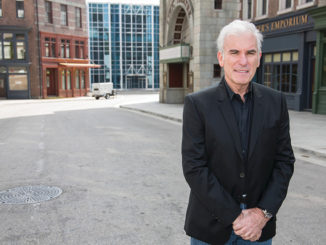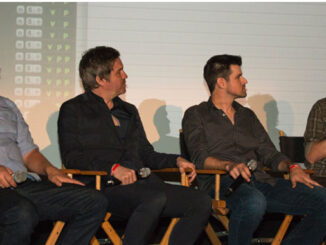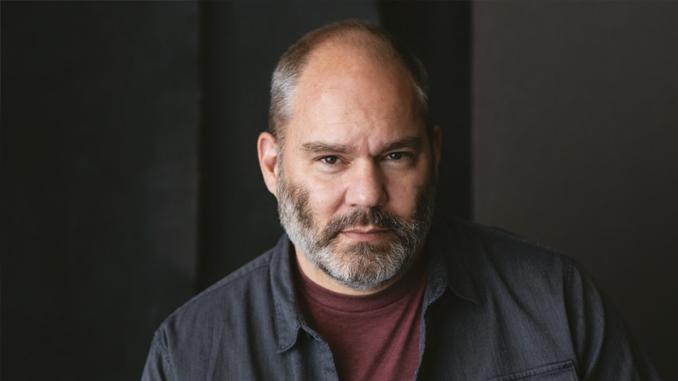
By Kristin Marguerite Doidge
Composer and music editor Shie Rozow has worked on hundreds of hours of television and more than 150 feature films, including major international blockbusters like “The Flash,” “The Lost City,” “Guardians of the Galaxy,” “Avengers: Age of Ultron” and “Hustle & Flow.”
Armed with over 25 years of industry experience and driven by his lifelong passion for music and storytelling, Rozow realized he wanted to pay it forward by sharing his knowledge with the greater editing and film community.
“Over the years, I noticed that many aspiring and novice filmmakers, as well as composers, music editors, and music supervisors recognize the need for music but struggle with figuring out where and how to use music in their productions,” he said. “Some feel intimidated by music, too. As someone who’s created countless temp scores, this is something I’ve been doing for many years — finding the tone of a film/TV show, where to add music, where not to, and the role the music should play.”
What began as an idea for a Facebook group evolved into a four-year labor of love that culminated in the publication of his new book, “Every Note Tells a Story,” a practical handbook that provides filmmakers and directors with an illuminating overview of the film scoring process. Featuring a wealth of handy resources and advice, personal anecdotes, expert film-scoring strategies, and real-world case studies of these lessons in action, readers will discover how to enhance and enrich their storytelling through the transformative impact of music.
“Music is yin to film’s yang,” wrote legendary editor/sound designer and three-time Academy Award winner Walter Murch, ACE, in his endorsement of the book. “They have co-existed since the dawn of cinema. Shie Rozow’s ‘Every Note Tells a Story’ is a superb and comprehensive guide to how music and motion pictures work together and complement each other, probing the difficult questions of correct composition, performance, and placement.”
CineMontage recently spoke with Rozow about how he hopes the book will be utilized by the next generation of aspiring composers, editors, and filmmakers.
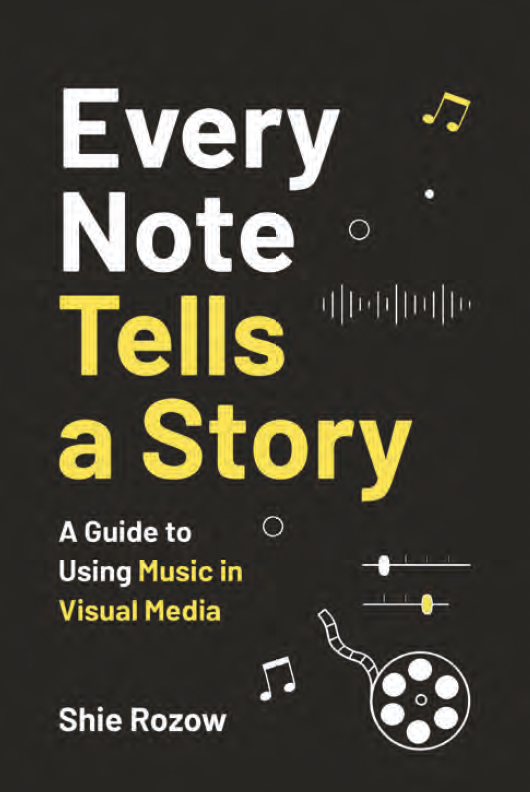 CineMontage: Your first book was “Preparing for Scoring Sessions,” published in March last year. How does this book differ?
CineMontage: Your first book was “Preparing for Scoring Sessions,” published in March last year. How does this book differ?
Rozow: ‘Preparing for Scoring Sessions’ is a much shorter book and is a detailed practical guide to everything from scheduling and budgeting to preparing Pro Tools sessions for recording and mixing, to delivering final stems to the dub stage. It’s very specific to that topic, while ‘Every Note Tells a Story’ discusses the role of music, how it affects the story, delves into how the process works, the different roles of the music team, and culminates in a collection of case studies discussing real-world projects. It’s much broader and about four times bigger in terms of page count.
CineMontage: Who do you hope will read it, and what do you hope they’ll do afterward?
Rozow: The primary audience is filmmakers and people interested in working in music for film/TV/Games. This includes aspiring directors, producers, editors, composers, music editors, and music supervisors, though I tried to write it in such a way that would be interesting for film music fans, too, who want a glimpse behind the scenes into how it all comes together. I wrote it in a very modular way, so one can just jump around and read only the parts they’re interested in, or they can read it from cover to cover. I have a pretty extensive index to help those who wish to jump around. My hope is that readers will get a better understanding of the different ways music can help tell a story as well as how the process works and who does what. Ideally it will remain a useful resource that they can refer to when they’re working on projects.
CineMontage: How did you decide on the book’s organization?
Rozow: I realized that, broadly speaking, I was discussing three topics: how music functions in visual media, how the placement of music affects the story, and how the stylistic approach to the previous two topics affects the story, so those became the first three chapters.
However, at the urging of a few close friends with whom I discussed the book, I expanded it to describe who does what within the music team and how the process works. Also, I added two chapters on terminology (one focusing on music terminology, the other on legal matters regarding music), and I added the Q&A case studies, which offer glimpses into real-world projects ranging from micro-budget shorts to documentaries, to feature films of varying budgets to an episodic TV series. Finally, there’s an appendix with sample spotting notes, a sample deal memo, sample cue sheet, and more.
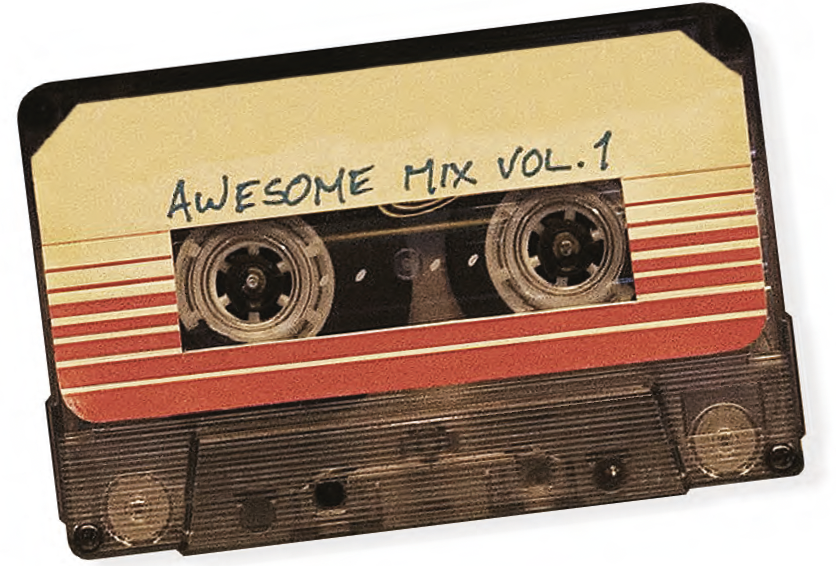
CineMontage: A number of talented people contributed to those case studies in the book. What kind of insights did they provide?
Rozow: These case studies invite the reader into the mind of the filmmakers and composers who created them. I’ve never seen a book that has anything quite like it — discussing actual projects with the people who made them. In a way, it’s like letting the reader pick the filmmaker’s brain about these specific projects, something they likely will never get a chance to do in real life.
CineMontage: What are you working on now?
Rozow: I’m currently music editing a film for Netflix. I’m about to start scoring a documentary miniseries for Max, and in my free time, I’m working on two different albums — one for a music library and the other just for fun.
CineMontage: Where can members find your book and other resources?
Rozow: “Every Note Tells a Story” is available through all major retailers, as well as directly on my own website (www. shierozow.com). There are hardcover, paperback, e-book and audiobook versions available. My other book, “Preparing for Scoring Sessions,” is also available as a paperback or e-book, and it was recently added to the curriculum at Berklee College of Music’s film and media scoring major.
Music editors and composers can also find other resources on my website’s blog (https://shierozow.com/the-blog/), including two free Google Sheet templates that I created: the SR show cue manager, which is designed to help the music team keep track of the progress of their project, and the SR project budget estimate template, which is designed to help people create budgets for their projects. I use both regularly and both are free for anyone who wishes to use them.
This interview has been edited for length and clarity.


